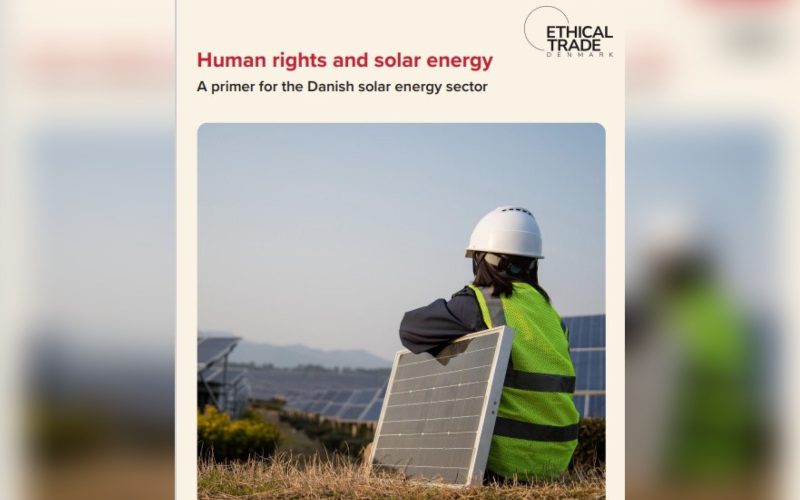A newly released guide is putting the spotlight on human rights concerns within the solar energy sector, calling on Danish companies to strengthen ethical practices across their global operations.
Published as part of the Solar Energy and Human Rights Project, the guide outlines how solar companies can identify, address and prevent human rights abuses linked to their supply chains—from raw material extraction to manufacturing and deployment. The project is a joint initiative by the Danish Institute for Human Rights and Green Power Denmark, with support from Ethical Trade Denmark through co-facilitated workshops and peer learning sessions.
The guide arrives at a critical moment, as solar power continues to grow as a key driver of the green transition. However, reports of forced labour, unsafe working conditions and adverse impacts on communities in the value chain have raised questions about the sector’s social and ethical foundations.
“To be truly sustainable, the energy transition must be fair and rights-based,” the guide stresses, urging companies to adopt responsible business conduct not only as a compliance measure but as a strategic priority.
Structured in three sections, the guide provides:
- An overview of the human rights landscape in the solar energy industry.
- A deep dive into priority risks and recommended actions for Danish solar companies.
- Insights on future pathways for ethical and sustainable growth within the sector.
Developed through interviews, desktop research and stakeholder workshops, the publication aims to serve as both a practical tool and a call to action. It reflects growing awareness across industries that upholding human rights is essential to long-term resilience, public trust, and a just energy transition. As pressure mounts from regulators, investors and civil society, the guide positions Denmark’s solar sector to lead by example in embedding human rights into the core of renewable energy development.
















